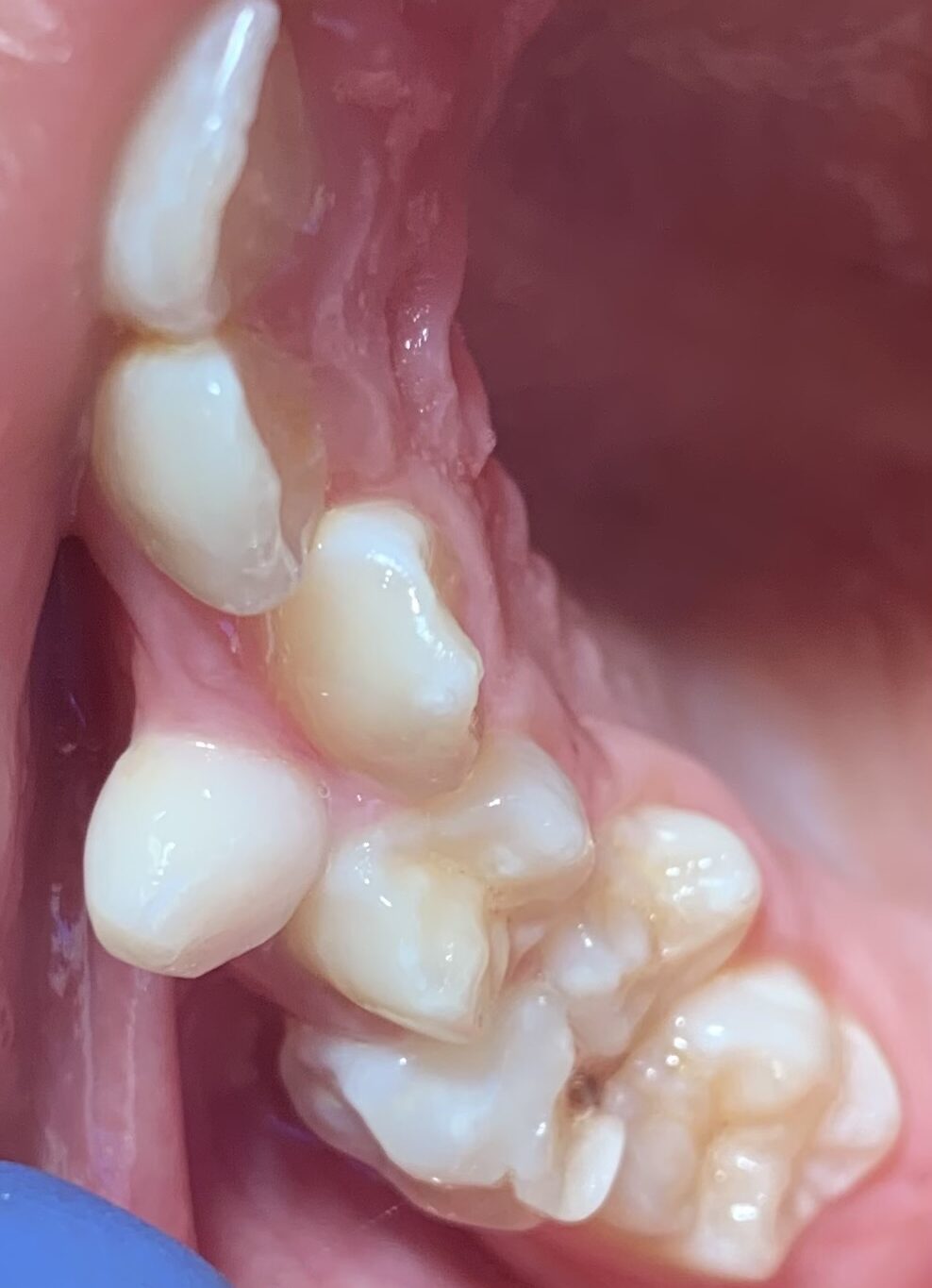Introduction
Teeth, whether primary (baby teeth) or permanent, are the building blocks of the mouth and the gateway to a healthy smile. Teeth allow us to eat, smile, talk and communicate with our world. Primary or baby teeth (aka milk teeth) are essential for the development of the mouth and jaw as your child grows and also serve as space holders for their developing permanent teeth successors that will follow.
What Are Baby Teeth?
The first teeth that grow in a child’s mouth are their baby teeth. These teeth are the primary set of teeth, which are replaced by the permanent set of teeth. There are 20 primary teeth which come in typically starting at approximately 4-5 months and are completely in by the time your child is about 3 years old. The primary set of teeth are important for chewing food and making speech sounds and preserving space for the developing permanent teeth.
What is an overretained Baby Tooth?
Children have 20 primary or baby teeth that are gradually replaced by permanent teeth from approximately age 6 to age 11 or 12. It is not unusual for a child to sometimes have a primary or baby tooth stick around longer than necessary. The permanent tooth begins to erupt or grow in around the baby tooth it was meant to replace. These baby teeth may be called “overretained baby teeth” and may sometime require removal by Dr. Monica. If they are not removed in a timely manner, they can cause malalignnment of the permanent teeth. Malalignment is when the teeth are not lined up properly in the arch. If you notice this in your child’s mouth, Dr. Monica can check if extraction of this tooth is necessary. In some instances, if the baby tooth is very loose and close to exfoliating, Dr. Monica may encourage your child to work on wiggling it out at home.
Common Signs and Symptoms of Overretained Baby Teeth
The most common signs and symptoms of overretained baby teeth are pain, swelling, and redness and malalignment. If left untreated, the baby teeth can cause the permanent teeth to erupt around the overretained primary tooth making it difficult to brush and floss as well.
How to Prevent and Treat Overretained Baby Teeth?
In some cases, children will retain one or more baby teeth after their permanent teeth come in. The most commonly overretained baby teeth are the primary lower front incisors. Overretained baby teeth can be difficult to brush and floss around, and can sometimes be a food trap. Children should have their dentist check their mouth regularly to make sure there are no overretained baby teeth which require extraction.
At every cleaning and dental checkup visit, Dr. Monica will always check for any overretained primary teeth. She will examine and evaluate if there is a need to extract the baby tooth that has outstayed its welcome to make room for its new permanent replacement. If you notice this in your child’s mouth, please call us and schedule a visit today.

